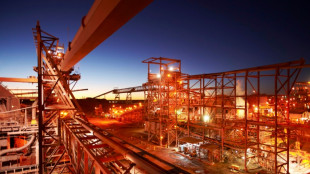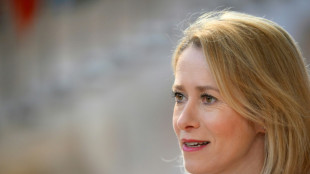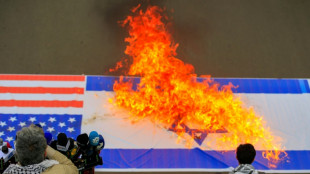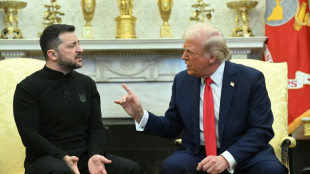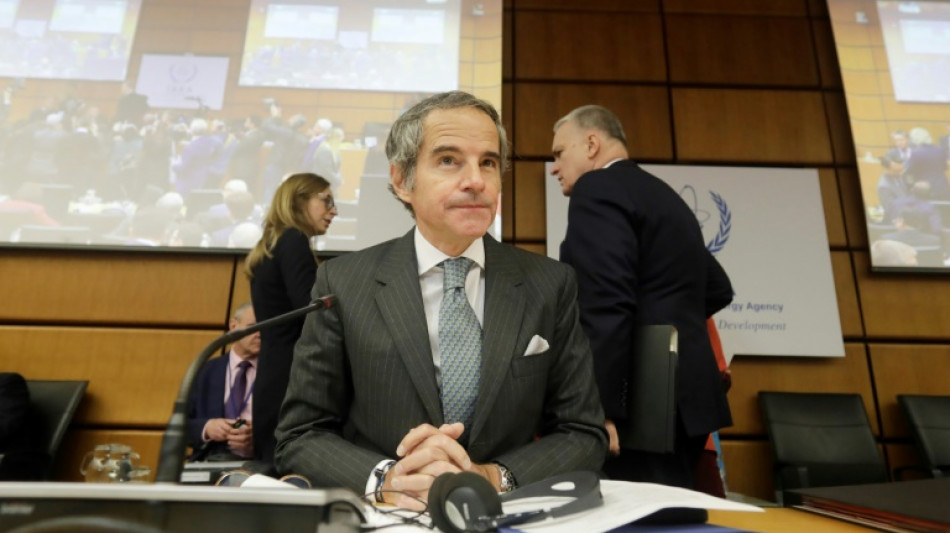

UN watchdog asks Iran to clarify tunnels but upbeat on deal
The head of the UN nuclear watchdog agency called Wednesday on Iran to explain tunnels built around a nuclear site but voiced optimism that US-Iran talks would land a deal.
The Institute for Science and International Security, a Washington think tank, released satellite imagery on Wednesday that it said showed a new, deeply buried tunnel alongside an older one around the Natanz site, as well as a new security perimeter.
"I've been raising this issue repeatedly, and I will continue to do so," Rafael Grossi, director general of the International Atomic Energy Agency (IAEA), told reporters on a visit to Washington.
Grossi, who visited Tehran last week, said that all countries need to inform the IAEA of intentions for facilities around nuclear sites but that Iran has a stance "unique in the world" that it does not need to inform the agency ahead of time.
"We're asking them, what is this for? They are telling us, it's none of your business," Grossi said.
Grossi said it "cannot be excluded" that the tunnels would store undeclared material but said he did not want to speculate on intentions.
But Grossi also said that Iranian and IAEA experts would meet to follow up on his visit, including on reinstalling cameras on nuclear sites.
"It was agreed that I am sending a technical team to continue our discussions on this very specific kind of things," he said.
"They are going to be meeting in the next few days in Tehran."
- Expectation of new deal -
Iran and the United States have held two rounds of talks since President Donald Trump called for a diplomatic solution to avoid conflict. A new round of technical talks is expected this weekend.
"I think there's a general expectation that this goes well and that the agreement is verified by the IAEA," Grossi said.
He said that was "more or less the sense of what I'm getting when I'm talking to leaders," mentioning specifically Chinese Foreign Minister Wang Yi as hopeful for a US-Iran deal.
Trump in 2018 ripped up an earlier nuclear agreement negotiated under Barack Obama and reimposed sweeping sanctions.
But Trump has voiced hope in his second term for a new accord that would resolve the issue diplomatically, and has discouraged Israel from a military strike on Iran.
Asked about a military option, Grossi said: "I should simply remind that attacks on nuclear facilities is something that could have potentially very, very serious consequences."
- US talks tough -
The Obama deal, known as the JCPOA, allowed Iran to maintain uranium enrichment at 3.67 percent -- far below the level needed for nuclear weapons -- for civilian nuclear usage.
US Secretary of State Marco Rubio stood firm in an interview released Wednesday that there should be no enrichment.
"If Iran wants a civil nuclear program, they can have one just like many other countries in the world have one, and that is they import enriched material," he told the Honestly podcast.
Rubio said the Trump team would not repeat the Obama deal which "gave Iran immediate and full sanctions relief in exchange for enrichment capabilities that at any point could be weaponized in the future."
Obama administration officials counter that the JCPOA worked in constraining Iran's program until Trump walked away and that it is unrealistic to expect Iran to surrender its whole program.
The Trump administration has kept up sanctions despite the diplomacy. On Tuesday, the Treasury Department imposed sanctions on an Iranian shipping network and its purported owner.
Iranian foreign ministry spokesman Esmaeil Baqaei responded that the move was in "clear contradiction with the United States' demand for dialogue and negotiation and indicates America's lack of goodwill and seriousness in this regard."
burs-sct/mlm
E.Leblanc--PP



